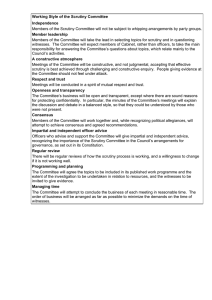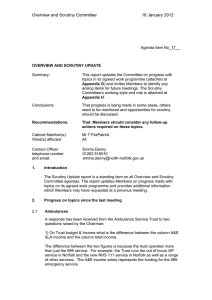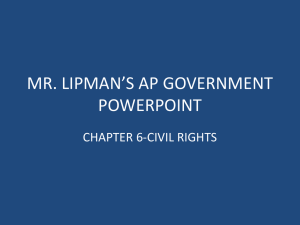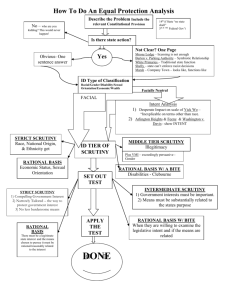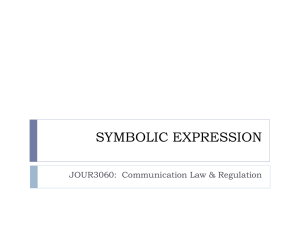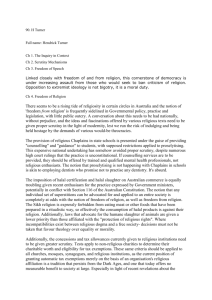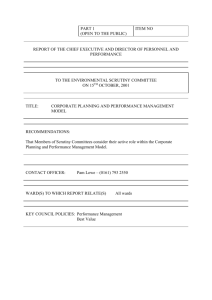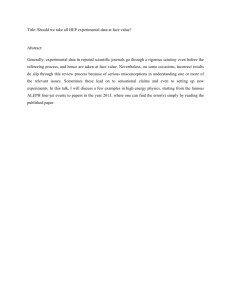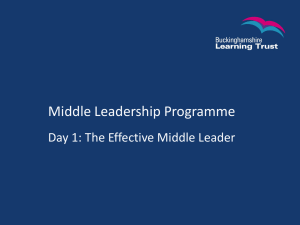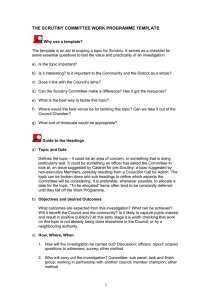Attachment: 4
advertisement
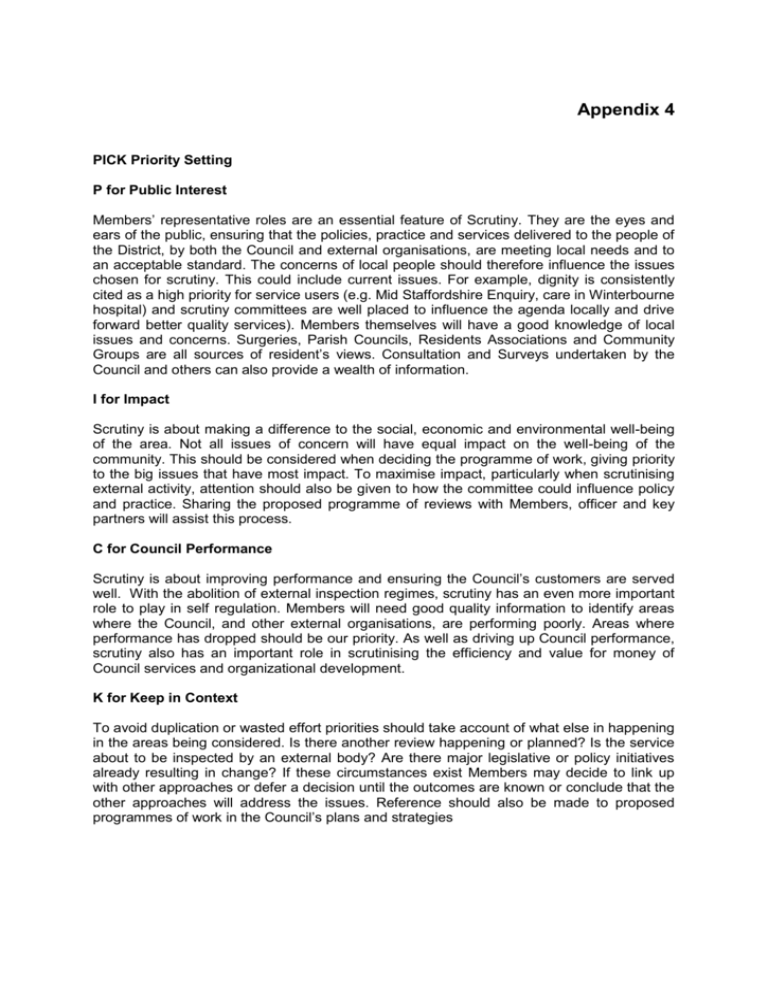
Appendix 4 PICK Priority Setting P for Public Interest Members’ representative roles are an essential feature of Scrutiny. They are the eyes and ears of the public, ensuring that the policies, practice and services delivered to the people of the District, by both the Council and external organisations, are meeting local needs and to an acceptable standard. The concerns of local people should therefore influence the issues chosen for scrutiny. This could include current issues. For example, dignity is consistently cited as a high priority for service users (e.g. Mid Staffordshire Enquiry, care in Winterbourne hospital) and scrutiny committees are well placed to influence the agenda locally and drive forward better quality services). Members themselves will have a good knowledge of local issues and concerns. Surgeries, Parish Councils, Residents Associations and Community Groups are all sources of resident’s views. Consultation and Surveys undertaken by the Council and others can also provide a wealth of information. I for Impact Scrutiny is about making a difference to the social, economic and environmental well-being of the area. Not all issues of concern will have equal impact on the well-being of the community. This should be considered when deciding the programme of work, giving priority to the big issues that have most impact. To maximise impact, particularly when scrutinising external activity, attention should also be given to how the committee could influence policy and practice. Sharing the proposed programme of reviews with Members, officer and key partners will assist this process. C for Council Performance Scrutiny is about improving performance and ensuring the Council’s customers are served well. With the abolition of external inspection regimes, scrutiny has an even more important role to play in self regulation. Members will need good quality information to identify areas where the Council, and other external organisations, are performing poorly. Areas where performance has dropped should be our priority. As well as driving up Council performance, scrutiny also has an important role in scrutinising the efficiency and value for money of Council services and organizational development. K for Keep in Context To avoid duplication or wasted effort priorities should take account of what else in happening in the areas being considered. Is there another review happening or planned? Is the service about to be inspected by an external body? Are there major legislative or policy initiatives already resulting in change? If these circumstances exist Members may decide to link up with other approaches or defer a decision until the outcomes are known or conclude that the other approaches will address the issues. Reference should also be made to proposed programmes of work in the Council’s plans and strategies PICK Scoring System Public Interest: the concerns of local people should influence the issues chosen Score 0 1 2 3 I mpact: priority should be given to the issues which make the biggest difference to the social, economic and environmental well-being of the area Score 0 1 2 3 Measure no impact low impact medium impact high impact Council Performance and efficiency: priority should be given to the areas in which the Council, and other agencies, are not performing well. Score 0 1 2 Measure no public interest low public interest medium public interest high public interest Measure ‘Green’ on or above target performance ’Amber’, low performance ‘Red’ Keep in Context: work programmes must take account of what else is happening in the areas being considered to avoid duplication or wasted effort. Score 0 1 2 3 Measure Already dealt with/ no priority Longer term aspiration or plan Need for review acknowledged and worked planned elsewhere Need for review acknowledged Each topic will be scored under each category as indicated above. Where a category is not applicable, no score will be given.

